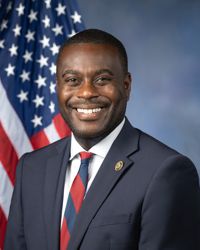H.R. 476: No Russian Tunnel to Crimea Act
This bill, titled the No Russian Tunnel to Crimea Act, aims to impose sanctions on foreign individuals or entities involved in the construction, maintenance, or repair of any tunnel or bridge connecting the Russian mainland to the Crimean peninsula. It is primarily a response to Russia's annexation of Crimea in 2014 and its subsequent military actions in Ukraine.
Key Provisions of the Bill
The bill includes several significant provisions:
1. Purpose and Findings
The bill states that:
- In 2014, Russia invaded and annexed Crimea, which is recognized as part of Ukraine.
- Russia built the Kerch Strait Bridge to link the Crimean peninsula with its mainland.
- In 2022, Russia expanded its military activities in Ukraine, which included utilizing Crimea as a military base.
- There have been discussions between Russian and Chinese officials regarding plans to construct a new tunnel to Crimea.
2. Sanctions Overview
The President of the United States is required to impose sanctions on any foreign person who knowingly participates in activities related to the tunnel or bridge project. These sanctions include:
- Asset Blocking: The President can block and prohibit all transactions involving the property and interests of the foreign person within the United States.
- Visa Restrictions: Individuals identified under this sanction will be ineligible for visas, admission, or parole into the United States, and any existing visas will be revoked immediately.
3. Exceptions to Sanctions
There are exceptions provided in the bill:
- Sanctions will not apply if admitting an individual is necessary to comply with U.S. international obligations or for humanitarian assistance, including the provision of food, medicine, and medical devices.
- Sanctions do not impede U.S. intelligence, law enforcement, or national security activities.
4. Implementation and Penalties
The bill allows the President to use authorities granted under the International Emergency Economic Powers Act to enforce these provisions effectively. Violation of these sanctions could lead to penalties that align with existing laws on similar violations.
5. Presidential Waiver
The President can waive the application of sanctions if deemed important for national security, provided that the waiver is communicated to Congress at least 15 days prior to taking effect.
Definitions
Key definitions included in the bill clarify terms such as “foreign person” and “U.S. person,” ensuring that the scope of the sanctions is clearly understood.
Relevant Companies
- Chinese Companies (e.g., China Communications Construction, 1798.HK): This company could be affected if it participates in the construction of the proposed tunnel, as U.S. sanctions would apply to its operations.
- China Railway Group, 1880.HK: If this company engages in building the tunnel connection for Russia, it could face sanctions, blocking its access to U.S. markets.
This is an AI-generated summary of the bill text. There may be mistakes.
Sponsors
7 bill sponsors
Actions
2 actions
| Date | Action |
|---|---|
| Jan. 16, 2025 | Introduced in House |
| Jan. 16, 2025 | Referred to the Committee on Foreign Affairs, and in addition to the Committee on the Judiciary, for a period to be subsequently determined by the Speaker, in each case for consideration of such provisions as fall within the jurisdiction of the committee concerned. |
Corporate Lobbying
0 companies lobbying
None found.
* Note that there can be significant delays in lobbying disclosures, and our data may be incomplete.
Potentially Relevant Congressional Stock Trades
No relevant congressional stock trades found.






